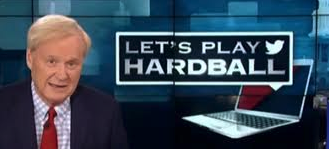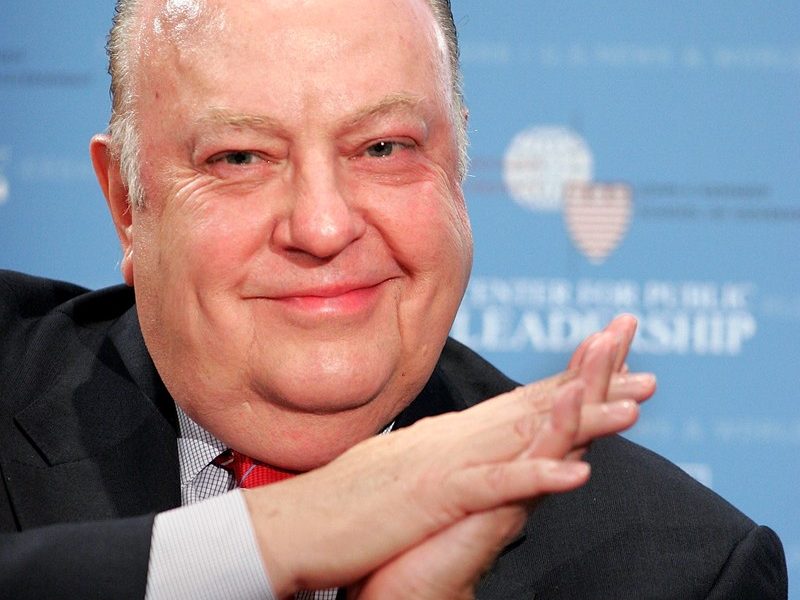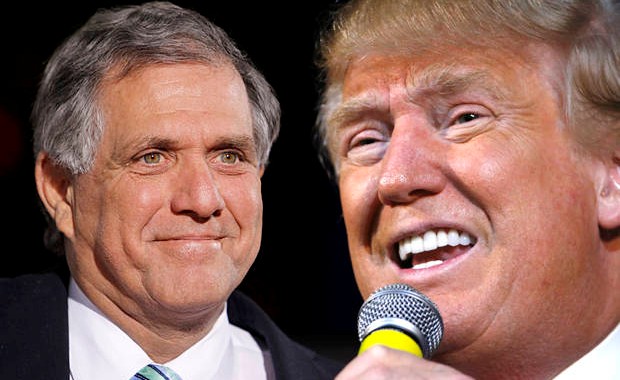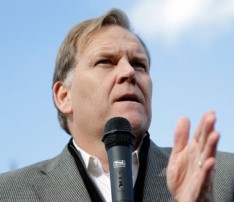It’s a thin line between politics and journalism.
And it seems thinner and thinner with each passing election.
Sometime during the 1990’s, the 24-hour cable news system merged with the professional political class and created what we loosely and often resentfully call “the political media.”
That resentment is growing. Only one in ten Americans view the political media favorably, which puts it at the same level as Congress. But this synergistic decline has not stopped a well-paid pack of partisan bloviators from framing debates, changing narratives and dutifully simplifying every issue into a simple matter of Coke versus Pepsi.
In the midst of what is shaping up to be television’s most lucrative election ever, the fact that journalists are ever-more incidental to the cable news business is the real story of this election. Rather, we’ll get a steady diet of opinioneering celebrities like Mary Matalin, James Carville, Donna Brazile, Matthew Dowd, Hilary Rosen, Ann Coulter, Bob Shrum, Ari Fleischer and, thanks to the folks at FOX, Joe Trippi. They, and so many others like them, populate the political infotainment shows that cable programmers pass off as political news. These de facto reality shows feature self-aggrandizing hosts whose primary job is to generate heat while they sit under the light—the spotlight.
It’s easy to see now exactly how this happened. The “political media” arose from a toxic stew of contradictory interpretations, half-truths, reframed facts and self-interested political posturing that all came to an inglorious, yet profitable, head with Monica Lewinsky.
During the decade that gave us reality television and the celebrification of everything, the 24-hour cable news networks discovered quickly just how profitable it was to pull the plug on overhead-intensive things like investigative journalism, overseas bureaus and actual news gathering and, instead, just fill their airtime with self-promoting political infotainers giving their reactions to stories pulled from the wires. And the daily soap opera of Monicagate was the gift that kept on giving. An orgy of quad screens, angry debates, us versus them, spin and counter-spin made cable news what it is, and it made the careers of political operatives and opinion makers and hosts and pundits.
Oh, the pundits.
Think back to a sepia-toned time when pundits were sequestered to the Sunday morning shows. They’d write a newspaper column and, if they were notable and well-respected, they might spend the last ten minutes of a Sunday show pondering the political landscape.
Think back to a time when Meet The Press was a show in which politicians and policymakers actually sat face-to-face with a panel of journalists and…wait for it…met the press!
But those halcyon days are long gone. Journalists have been slowly and steadily replaced by pundits and opinioneers and their binary debates between One and Zero, between Up and Down, between Left and Right. And then, cut to commercial.
Journalists still get airtime, though. Mostly to set up political debates about the facts they gumshoed, or to feed one side or the other a potentially damning story that can be used to score political points. Or is it ratings points? Is there even a difference? The only point of reporting seems to be about Right versus Left. Not right versus wrong.
Enter Ezra Klein. Literally.
The consistently relevant, somewhat wonky journalist for the Washington Post entered the debate over a newly-launched political product known as “Paul Ryan, VP candidate.”
Klein was summoned via satellite to a special edition of Chris Matthews’ show Hardball. Matthews, a former political operative and leading infotainer, rushed to get the jump on what has predictably become a loud, obnoxious and tiresome back and forth about anything and everything relating to Paul Ryan, including his rock-hard abs.
At least Matthews began with an issue—the so-called “Ryan Budget” and its proposed cuts on entitlements. Klein was a good choice, as few have a better grasp of the numbers involved with Medicare, Medicaid and the spiraling cost of American healthcare.
Of course, Matthews was “doing the political calculus” regarding Ryan’s proposed budget. He wanted to prove it wouldn’t play with seniors in the all-important swing state of Florida. Maybe because “Ezra Klein” is, at first blush, a Jewish-sounding name and, it could be surmised, he might have an elder Jewish relative in Florida, Matthews proceeded to engage Klein in this exchange:
MATTHEWS: Would you tell your grandmother to vote for this guy?
KLEIN: Well, I don’t tell my grandmother how to vote. She’s a strong woman.
MATTHEWS: If she asked you for advice?
KLEIN: I’m a journalist. I don’t tell people how to vote.
And there you have it. Clear and simple and succinct.
It may be a thin line between politics and journalism, but it is refreshing to see someone take a pencil out of their reporter’s pad and draw that line right there in front of a professional eraser.
Tweet





'How Ezra Klein Punked Chris Matthews, Political Media and the Entire Cable News Model' has 1 comment
August 16, 2012 @ 3:15 pm Tom O'Neill
“…draw the line right there in front of a professional eraser” is a splendid way to conclude this very thoughtful analysis.